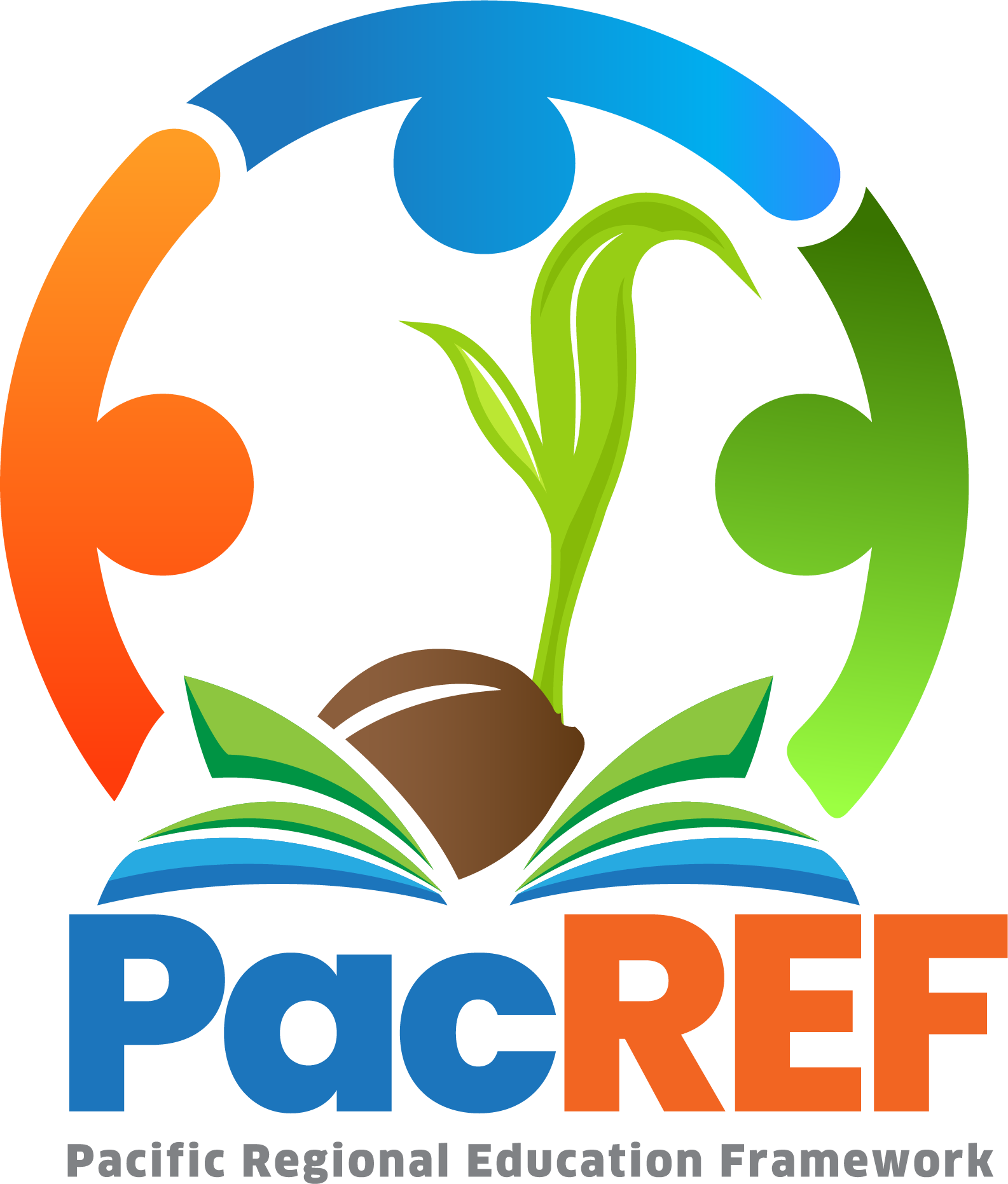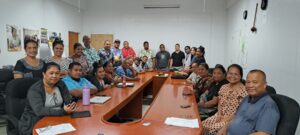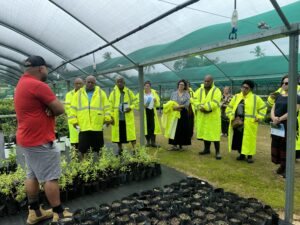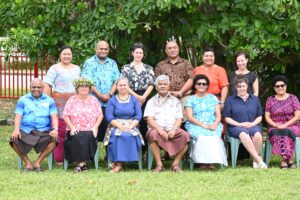The University of the South Pacific’s (USP) Discipline of Education (DOE), as part of its role as an implementing agency for the Pacific Regional Education Framework, recently concluded a successful visit to the Solomon Islands, as part of the efforts to reinforce Early Childhood Education (ECE) initiatives in the region.
Led by Dr Rosiana Lagi, Deputy Head (Learning, Teaching, and Quality) of the School of Pacific Arts, Communication and Education, and consultant Dr Ledua Waqailiti, the visit fostered collaborative efforts with key stakeholders. These included the Ministry of Education, teachers, school heads, and officials, all working together to strengthen ECE teacher training and curriculum development.
The visit started with a courtesy meeting at the Ministry of Education with Solomon Island’s Permanent Secretary of Education, Dr. Franco Rodie, and Deputy Secretaries of Education, Ms. Linda Manata Wate. The meeting laid the foundation for strong collaboration between PacREF and Solomon Island’s Ministry of Education focused on educational advancement.
A pivotal two-day workshop and survey followed, gathering valuable insights and recommendations from a diverse range of participants. This included ECE, primary and secondary teachers, school heads, and Ministry officials.
Dr Lagi highlighted a key sentiment emerging from these discussions: the urgent need for a collaborative effort between PacREF, Solomon Islands National University (SINU), and the Ministry of Education to develop a unified National ECE Curriculum. This curriculum would be harmonised with the Teacher Training Institution Curriculum, ensuring a cohesive and effective approach to early childhood education.
“Participants emphasised the importance of aligning ECE strategies with children’s Foundation Areas of Learning and Development (FALD), particularly for ages 3 to 5 years,” Dr. Lagi explained. “A robust curriculum designed to enhance FALD was deemed essential, aligning with the broader goal of cultivating a holistic educational foundation for young learners.”
Dr Lagi further stressed the crucial role of collaboration between PacREF, SINU, and the Ministry of Education in establishing a comprehensive and impactful National ECE Curriculum. “Our collective efforts will lay the groundwork for an effective framework that nurtures the developmental needs of our youngest learners,” she asserted.
Quality education remains a top priority for USP’s 12 member countries. The university’s School of Pacific Arts, Communication, and Education (SPACE) provides holistic education programmes that empower students to share the quality education they receive and contribute to a better quality of life for their communities. DOE implements PacREF activities according to the PacREF Rolling Plan.
The activities under the Implementation Rolling Plan are structured under each of the four policy areas of the Programme and clustered into 16 Regional Public Goods (RGs). The RGs are in the form of tools, standards and services which are intended to be embedded into national education systems to improve the quality of education and service delivery. Countries will select which of the RGs they would like to contextualise into their education systems and will be supported by the IAs in the process.
The Pacific Regional Education Framework programme is now at the end of phase one of implementation, and implementing agencies (IAs), including the Pacific TAFE, Institute of Education (IOE), Discipline of Education (DOE) of the University of the South Pacific (USP); the Educational Quality Assessment Programme (EQAP) of the Pacific Community (SPC); and partner agencies the United Nations Educational Scientific and Cultural Organization (UNESCO), the United Nations Children’s Fund (UNICEF), the Australia Pacific Training Coalition (APTC) and the Pacific Islands Forum Secretariats work collaboratively and are guided by the PacREF Implementation Rolling Plan (IRP) to ensure the sustainable, affordable and successful implementation of the programme.
Ends



